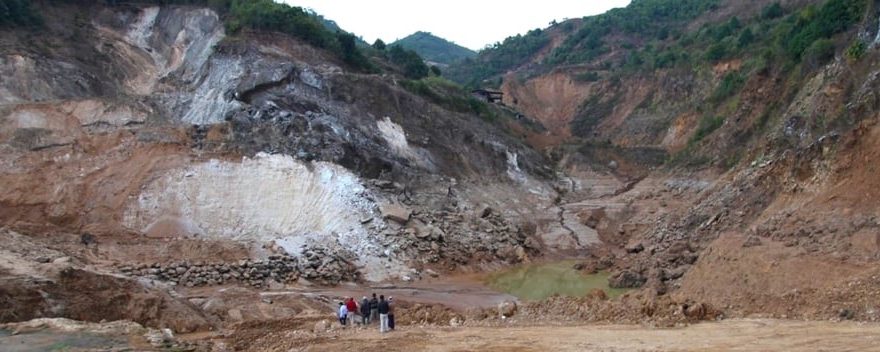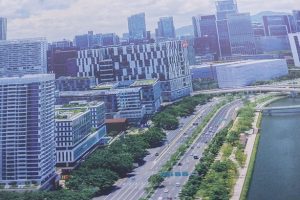
Mining is an emerging sector in Ethiopia that has been playing a crucial role in the development agenda. It is an economic sector that contributes to agriculture, industry, urban development, construction, energy and others.
It is inevitable that the extraction of minerals from the natural earth leads to disturbing the environment. When disturbing the environment there must be careful and systemic protection of the whole system of environment that assures sustainable use of the current resource and ecosystem and that bring about either less or almost no destruction or pollution of the environment.
The mining legislation of Ethiopia, which came into effect in 1993 has a provision that requires as compulsory criteria to study, submit and get the approval of Environmental Impact Assessment from the respective Authority in order to develop large scale mining project. According to the old report by the ministry of mine, the common environmental issues in Ethiopia to be considered in the development of the medium to large scale mining projects are the surface and groundwater system, the physical land management (soil, rock stability, deforestation grassland, farmland, etc), spillage of strange chemicals/metals, air, noise, dust, aesthetic values of the area, cultural and tourist heritage, the communities as well as all other lives surround the mine proximity.
Even though they know that developers have impacted the economy, countries affected by environmental catastrophes are now bothered more by the impact the project it would bring. These days, every developer has to gain information and carry out development projects considering the three aspects of philosophy: economic value -where every developer focuses, environment value- the natural resource and the social environment as well, said Samuel Hailu, Environmentalist, who specialized in environmental and social impact studies.
The social and natural environment is the foundation for investment. Thus, when investors are looking at the economic value, their base is environmental and social values. If they don’t look at the two critical components of sustainability, their focus is on gaining economic benefit which is perilous to the environment.
As they are the sources of an economy, if you damage these two foundations (the environment and society), sustainability will not be visible. That is what has happened in this country for the past many years.
Many investors are not able to operate for more than 30 years. Why the lifetime of investors is short? The study conducted by Samuel’s consulting firm depicts that Ethiopian businesses and investors lag behind in applying the concept of sustainability.
In other words, if everyone is focused on the economic values but ignore the social value; the impact will create instability both on the social and environmental aspects. As a result, companies would not be able to earn a sustainable income and hence gradually they will be forced to shut down. In our history, Ethiopian Airlines is among the few companies that have been operating for a long. Most of the companies established at the same time either vanished or experienced a change in ownership. By and large, sustainability is a critical component.
There is a philosophy that says we need to start looking at the environment from different dimensions. We have got to put every being in mind. And nature has two big components – mental power and environmental power.
The sustainability aspect implies how we use mental power to develop the environment. If your mental power is very strong, you can understand what is in the environment and how to manage it. If this is so, economic development, sustainability and social responsibility can come together.
Indeed, everyone needs development. But, during the industrial revolution for instance, while everyone was focusing on industrial development, it brought a lot of damage and caused diseases and pollution. The ultimate goal of development is to improve the livelihood of society. But development is not the sole building block for progress; of course, it fulfils the needs and interests of the people.
For me, we need development to make a better society. Indeed, developers focused only on the bottom point which is financial return whatever the cost on the environment might be. This has brought great damage to the environment. Hence, we have to also think of sustainability not only in terms of the environment but also in society.
For instance, in our country, our government has been engaged in mega infrastructure developments to make societal aspirations such as road networks and health services etc a reality. But, what is missed is society. The development has created a lot of displacement here and there which resulted in political chaos. The development has to come but it has to ensure the direct benefit of the current and forthcoming generation. With this, it is possible to ensure sustainability.
There are a couple of reasons for this. One is the government has limited capacity. Of course, we have got environment impact assessment and pollution control proclamations enacted in 2002. In general terms, these are very good proclamations to support development endeavours. However, the rapid development strategy which was issued ten years has some gaps in ensuring sustainability. The then officials were highly focused on ensuring rapid economic development. But, when they tried to bring quick development, the bureaucratic procedures took time and there was reluctance in fully implementing legal frameworks meant to protect the environment. As a result, many projects were started without environmental documentations.
Even if some projects have gone through the environmental assessment process, the processes did not pass through all the required procedures. Even if many projects have got environment assessment report with good mitigation measure, they end up in a shelf. Finally, projects commenced without reviewing the environmental aspect. So, there has been a big gap in the regulatory bodies. Investors don’t want to be responsible for the damage that occurs to the environment due to their activities.
One of the challenges in this regard is the absence of strong institutions. The other hindrance is environmentalists. We have not properly designed tools of environmental procedures and systems to produce an effective document. As a result, the impact is reflected in the community or in the environment.
The third is the developers/companies in Ethiopia. They are not concerned about the environment. Globally, companies are becoming very critical of the matter. Even before they start doing anything and put their footprint, they want to know what their liability is and what cost would they incur if something went wrong. For an Ethiopian developer, they need only the permit. So they do not care about how much it costs? What is their liability? They have got different ways of looking into these issues.
One thing that needs to be considered here is developers have to review the environment carefully if they want to make the business sustainable. They don’t have to abuse the state’s capacity limitation to make money. Even though the country does not have proper tools, they will have to be ready to be liable for the damage they cause to the environment in the future.
The government has capacity limitations to monitor, inspect and enforce actions on those who abuse environment procedures and systems as an advantage to make business. Developers have to look into the environment from different perspectives in order to avoid liability today and tomorrow.
The environment and society have to be protected in order to achieve our ultimate goal that is development. Thus, we have to be able to balance these three.
Without a doubt, this country has hope in terms of development and environmental protection. To maintain our hope, the government has to work with all the pertinent stakeholders, particularly environmental organizations and businesses. Parallel to this, awareness-raising tasks should be expanded, the expert concludes.
BY GIRMACHEW GASHAW
THE ETHIOPIAN HERALD OCTOBER 10/2021





